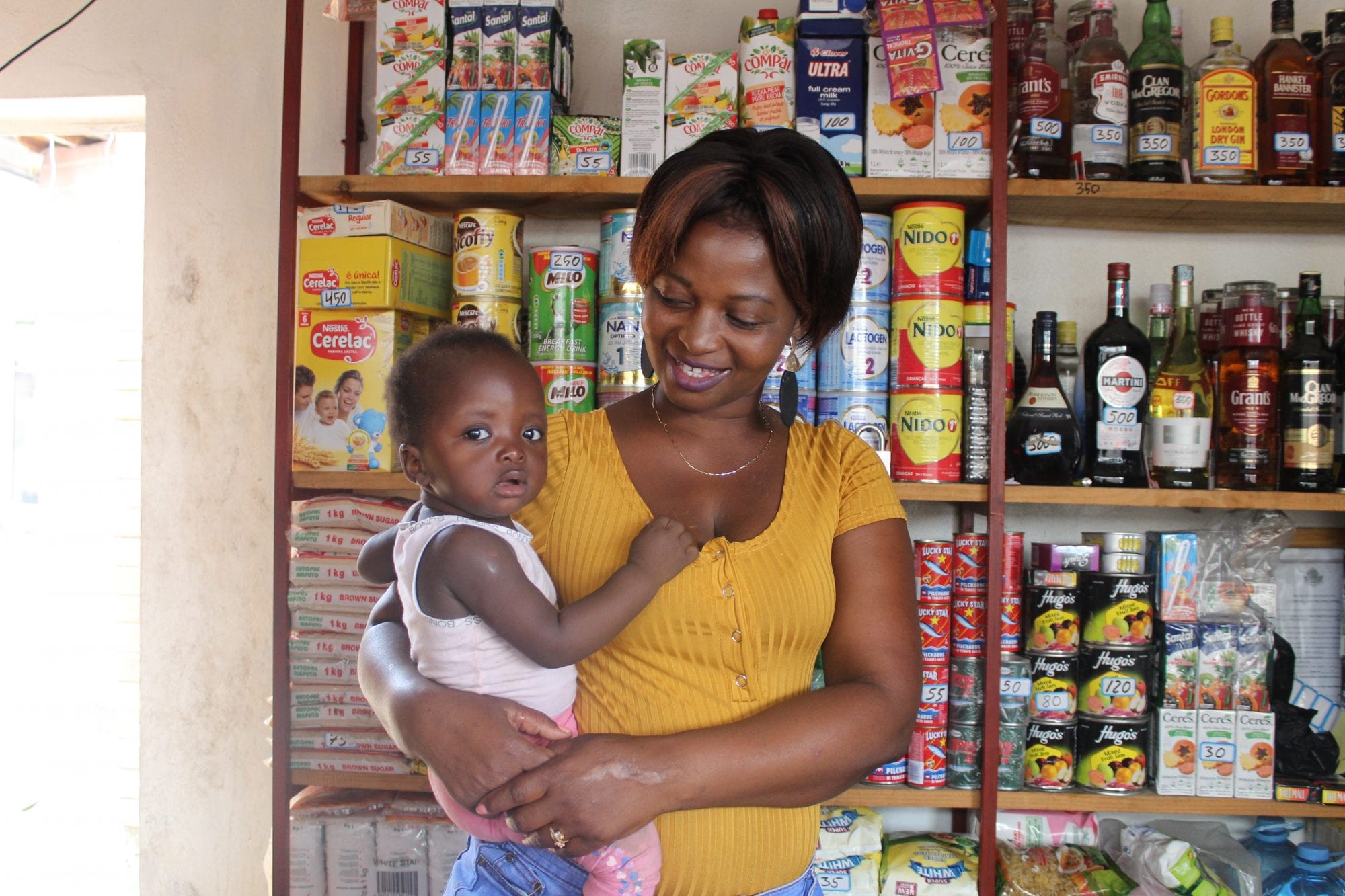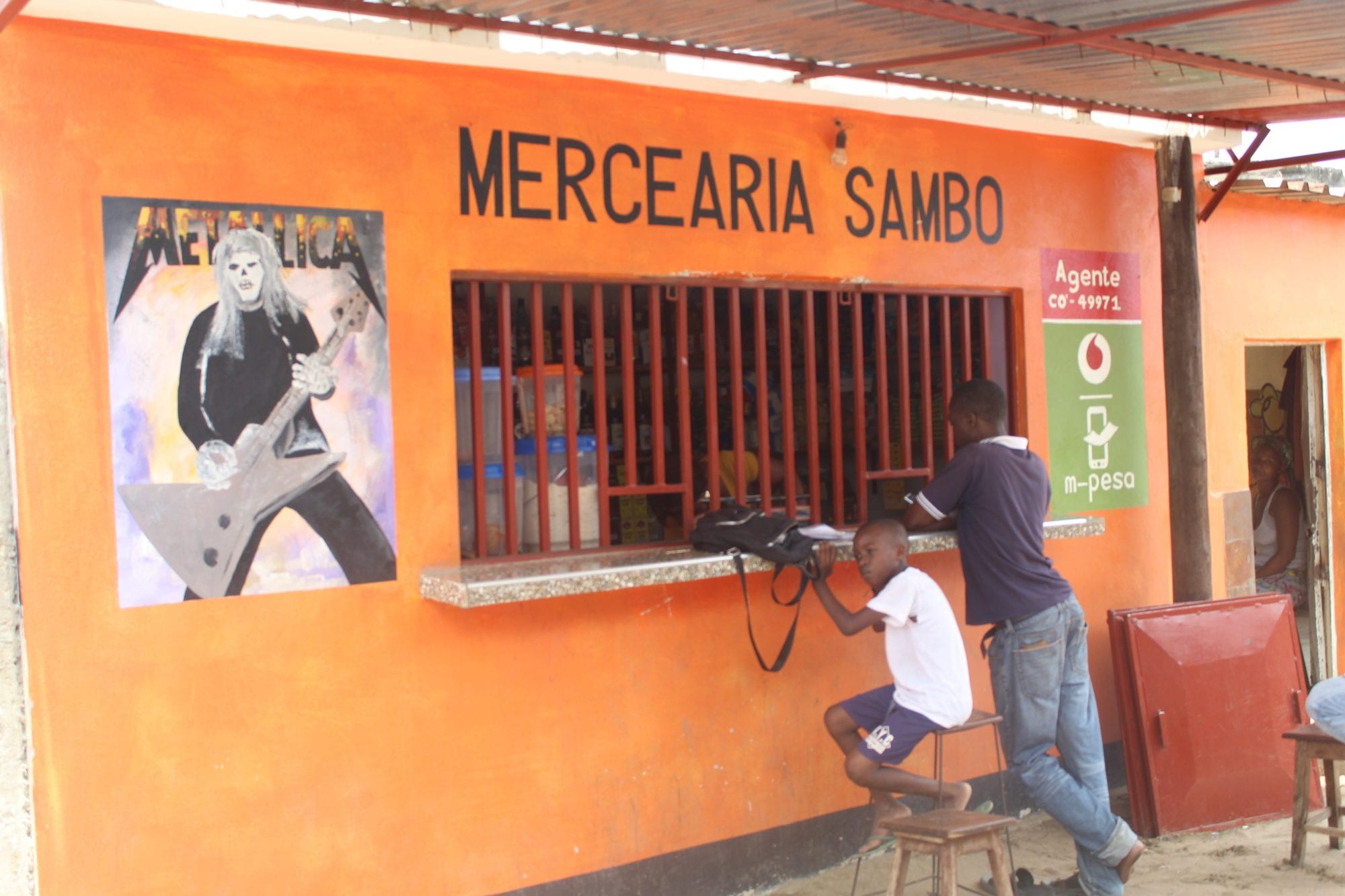
How One Woman is Challenging Gender Roles in Mozambique
Table of Contents
Bernadette Sambo is a wife, mother, and successful businesswoman. Using the insights and knowledge she gained from a TechnoServe training, she has been able to balance being a working parent and transform her business at the same time.
gender roles – how one woman is challenging them in Mozambique

Bernadette Sambo, like many Mozambican women, juggles a lot of responsibilities. She is a parent and the primary caretaker of three children, two of whom are under the age of 10. She also owns a small grocery shop called Mercearia Sambo in Mozambique’s Maputo province. She was expected to manage both her home and the shop, two full-time jobs which — until recently — she did largely without the support of her husband.
In Mozambique, strongly held beliefs about gender roles often make it difficult for women to find work outside of the home, and when they do, they are often not supported by their husbands. Men are often seen as the breadwinners, while women are expected to stay at home and care for the children. In 2018, just 5.8% of women in Mozambique held paying jobs, compared to 23.7% of men.
“My husband didn’t help with our children, so I often had to close the shop early to attend to my activities in the house,” she recalls. Mercearia Sambo was not bringing in enough revenue and offered only a small product range, which reduced Bernadette’s ability to attract and retain customers.
Though technically it was her business, she and her husband could never agree on the best way to run the shop, or even the most basic practices, such as how much money to save each month.
Making a Big Change
In 2019, Bernadette began looking for an opportunity to improve her business and heard about the Business Women Connect (BWC) program — a partnership between TechnoServe and the ExxonMobil Foundation. The course offers both in-class training and one-on-one coaching sessions. Women learn:
- Financial literacy
- Business skills
- Good management, good planning, and adoption of good practices
Learn more about the Business Women Connect program.

For Bernadette, the training was transformational. Not only has her business shown remarkable growth over the last six months, but her relationship with her husband has also improved.
“Before attending the BWC training, it had been very difficult to work and negotiate with my husband,” Bernadette admits. “He alone got to decide many things related to the business.”
After participating in the training, Bernadette started putting what she learned to the test: saving more money, keeping better records of her business transactions, and paying more attention to merchandising. After just two months, she was able to pay all of her loans and even purchase a new fridge that allows her to sell fresh meat.
“My husband was surprised by the changes,” Bernadette shares with a laugh. “He started asking me often what I was learning in the training and how I improved the business so fast.”
Recognizing an opportunity to strengthen their relationship and challenge existing gender roles, Bernadette explained what she learned in the program, paying particular attention to the training on gender: “I convinced him about how joint decisions are important. Since then, he has slowly started being more supportive of my ideas.”

Culturally Relevant Training
The gender training was designed to address the specific challenges that many women face in achieving their business goals. First, the training encourages women to envision and articulate their dreams as businesswomen and share these goals with the group. Women also learn to identify negative gender norms and how they can impact women’s lives and businesses — part of preparing women to push back against the factors holding them back.
In this part of the training, participants learn to identify the differences between society and biology and the various ways in which socially-constructed gender roles have played out in real life. Finally, women have the opportunity to speak to a model businesswoman about how she negotiated her way to success — balancing life as a wife, mother, and businesswoman.
After some discussion, Bernadette and her husband decided to set up a weekly activity plan to identify the main household chores that needed to get done. Then they divided the tasks equally to ensure that the housework would be completed, the children would be cared for, and the business would be managed in the best way possible.
“Thanks to this, my business relationship with my husband has improved a lot,” Bernadette says. “Now my husband is my business partner and we agree on decisions. He also supports me with the children, which means I can work longer hours during the day, thus getting to know my customers’ preferences and pursuing new business opportunities.”
Bernadette is passionate about using the knowledge she gained through the Business Women Connect Program to expand her business. “I’m already planning to open a second grocery shop later this year in Intaka,” she adds with an excited smile.
Make A Difference
$25 provides a business webinar to one entrepreneur, with guidance for strengthening his/her business through COVID-19 and beyond.
$45 provides one business training session and one 1:1 advisory session to an enterprise.
$180 provides one month of digital business training and mentorship for one small business





